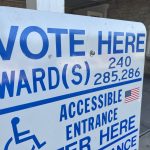BBB Tip: Shopping for sports team merchandise? Research the business first
Milwaukee, Wis. – When shopping for a team jersey or other sports memorabilia, watch out for fakes. Scammers know that authentic game-used and/or autographed items can fetch big bucks – especially for items commemorating big games.When shopping online, it can be hard to trust that a seller or product is genuine. Follow these tips when buying sports memorabilia:
“Game-used” items are highly sought after. Buyers prize items that saw action on the court or field as valuable parts of sports history. Consumers should be aware that there is a significant difference between “game-used” and “game-issued.” For example, a game-issued jersey was designed for the player to wear, but it may not actually have been worn. There’s nothing wrong with selling that kind of game-issued item—unless the seller scuffs it up and tries to pass it off as game-used for a higher price.
Outright forgeries can be the hardest to spot, and this issue has plagued collectors for decades. If you don’t have time to become an autograph authentication expert, but still want to make purchases, here are some steps you can take.
How the scam works – an example
Victims of this scam typically find fake sports merchandise through a social media ad or a quick web search. These scam online stores have great photos and cheap prices, making them look believable.
Victims report that at first, the purchase seems normal. The site charges their credit card and sends a confirmation email. However, weeks pass and the jersey never arrives. The anticipation of having a keepsake of a favorite team is suddenly dashed when the victim tries to contact customer service. They quickly find that neither the company nor the product exists.
One disappointed fan reported the following to BBB Scam Tracker: “This company advertised selling collector’s items of sports merchandise in special boxes. Each box was supposed to have a certain number of team-related items like a jersey, signed football or mini helmet, etc.. I paid 69.99 for the top box of Chicago Bears items. What I actually got was a cheap no-brand jersey, NFL keychain, and face mask. I went to the website to make sure I didn’t misread anything, and the site was not working. We did not expect to be scammed out of items and not get what we paid for.”
How to avoid sports merchandise scams:
- Be wary of deals that seem too good to be true. If the price of an item, collectible or not, is significantly less than what it is on other well-known retailers’ sites, this is a red flag that it might be a scam.
- Research the company before you purchase. If the company is unfamiliar, check BBB.org to see if they have a BBB Business Profile, or BBB Scam Tracker to see if anyone else has reported them as a scam. Look for contact information on the website such as a phone number or brick and mortar address as well as a robust social media presence to help determine if the company truly does exist.
- Never wire money or use a prepaid debit card as payment. Both payment types are often requested by scammers and, once the money is gone, there is no way to get the money back. Instead, make online purchases with a credit card and only on secure (https) websites.
- Double-check COAs: Certificates of authenticity (COAs) are the norm for memorabilia purchases, especially for costly items —so it’s likely that scammers will try to provide fake ones. A valid COA should state the qualifications and complete contact information of the issuer. Before you trust a COA, make sure it contains full and correct details on who issued it, and then make sure they’re a legitimate and reputable authority. If investing in a less expensive purchase that is not offered with a COA, the buyer should still request a written representation from the seller about the authenticity and origin of the item. It is also essential to establish and get a written statement about the item’s physical condition before you purchase it.
- Take extra care at charity auctions: Some scammers target charities by providing “donations” of fake memorabilia. When considering a bid for an item at a charity auction, be extra vigilant and watch out for suspicious price valuations and shady authentications. When in doubt about an item, consider making a pure donation to the charity rather than an auction purchase.
- Seek a money-back guarantee: If possible, work with a dealer who can guarantee a full refund of your purchase if you ever discover it’s a fraud. Check all terms and conditions of the sale, especially limitations, before buying the item.
For More Information
Subscribe to BBB’s Scam Alert emails for weekly updates on the latest scams.
To learn more about scams, go to BBB Scam Tips (BBB.org/scamtips).To report a scam, go to BBB Scam Tracker.
Read more about BBB Accreditation Standards and BBB Standards for Trust.
For more information or further inquiries, contact the Wisconsin BBB at www.bbb.org/wisconsin, 414-847-6000 or 1-800-273-1002. Consumers also can find more information about how to protect themselves from scams by following the Wisconsin BBB on Facebook, Twitter, Inst
ABOUT BBB: For more than 100 years, the Better Business Bureau has been helping people find businesses, brands and charities they can trust. In 2020, people turned to BBB more than 220 million times for BBB Business Profiles on 6.2 million businesses and Charity Reports on 11,000 charities, all available for free at BBB.org. There are local, independent BBBs across the United States, Canada and Mexico, including BBB Serving Wisconsin which was founded in 1939 and serves the state of Wisconsin.
NOTE: This press release was submitted to Urban Milwaukee and was not written by an Urban Milwaukee writer. While it is believed to be reliable, Urban Milwaukee does not guarantee its accuracy or completeness.






















